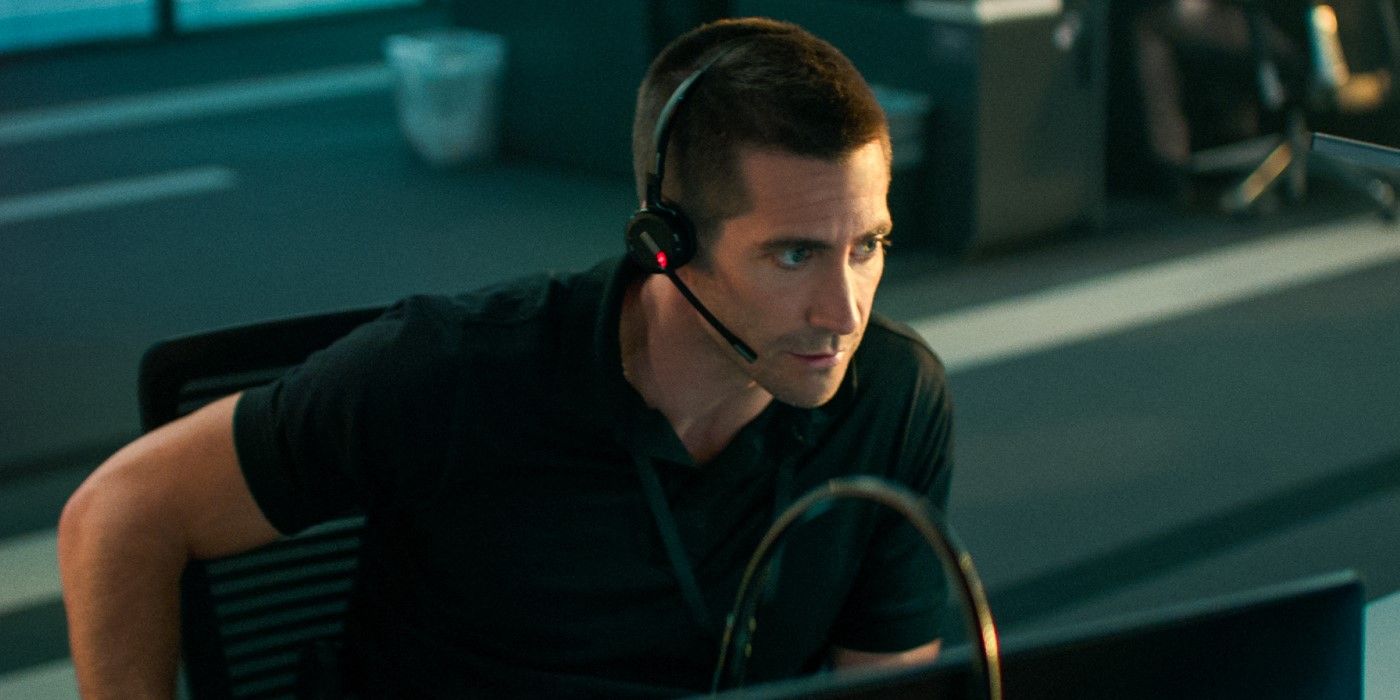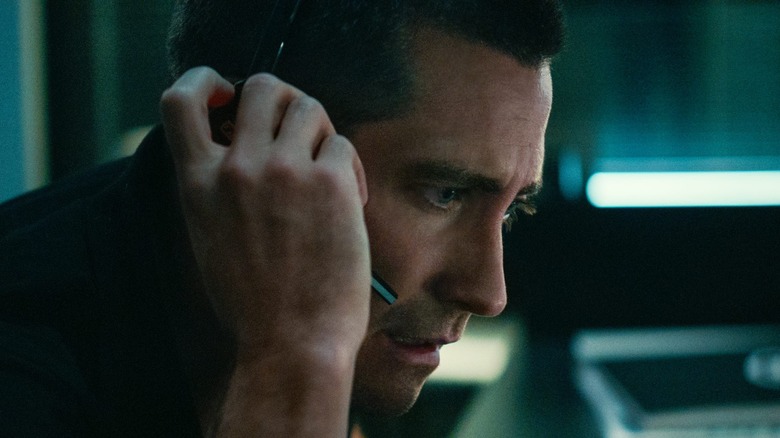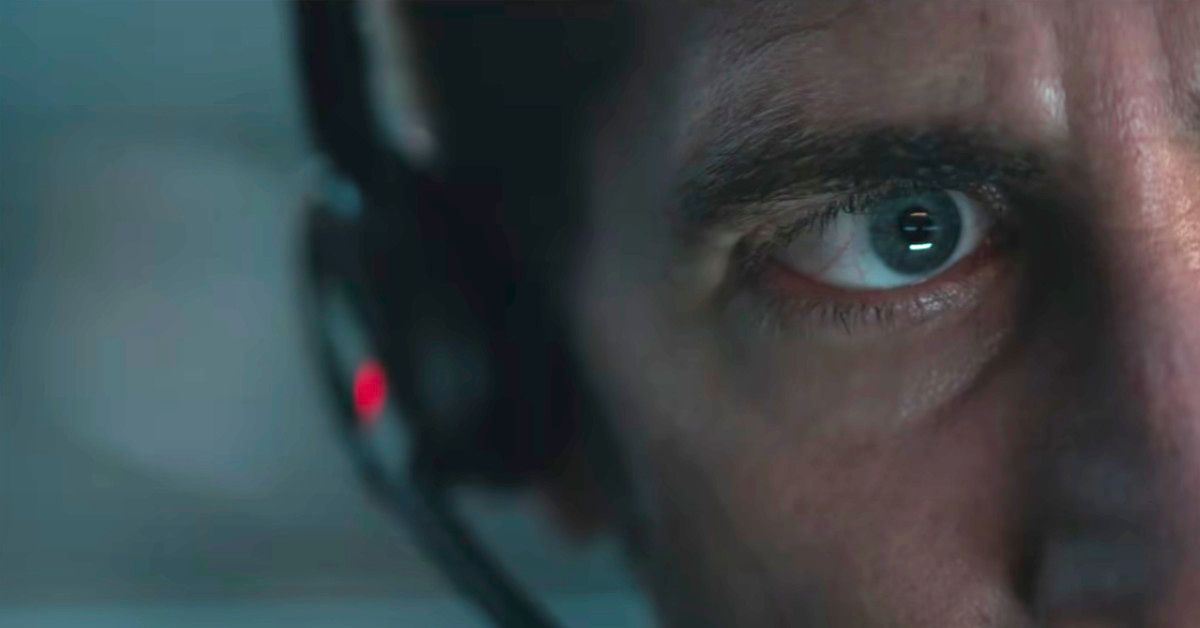Hello to beatiful people of Hive! Today, I want to review a movie I recently watched, The Guilty. I'm a huge cinema lover but never intended to do such a review for the Hive. It was more challenging than I thought, so here we go :)
The Guilty
A demoted police officer assigned to a call dispatch desk is conflicted when he receives an emergency phone call from a kidnapped woman.
IMDB

A meteorite that will hit the world, a villain who will destroy everything for his own purposes, or a notorious serial killer… Hollywood is the constant address of male heroes who have the potential to save lives on any scale, no matter what kind of danger they face. It grabs a story that is derived from outside its territory, but complies with its own motto, and presents it to us in its own packaging. The Danish production The Guilty – Den skyldige, written by Emil Nygaard Albertsen and director Gustav Möller in 2018, was a single-space thriller that made a name for itself in the international community and was appreciated by all kinds of audiences. The film, which was selected to represent his country in the Oscar race in the Best Foreign Language Film category, was shortlisted for nine films, although it did not receive a nomination. It is no surprise that this well-written detective thriller, which has also been on the radar of the American audience, shared the fate of similar productions produced in the Scandinavian lands in recent years, and made its way to a Hollywood remake. The American remake of The Guilty, which met with Netflix audiences just one week after its world premiere at the 46th Toronto International Film Festival, is unfortunately one of the examples that could not reach the level of the original.

Directed by Antoine Fuqua, who made a name for himself with big productions that shook the box office, especially in the first half of the 2000s, The Guilty, is a remake of the Danish original by being revived almost frame by frame. The film, which carries the original story to Los Angeles as it is, apart from some changes, has a fiction that works entirely through the protagonist Joe Baylor. Police officer Joe Baylor, who has been suspended from his duty for an indefinite period while his case is in the position of the suspect, is working in the telephone dispatch department of the 911 emergency call center during this process. We meet Joe, whose details about his past and family relationships are gradually learned as the movie progresses, while he is doing his last shift at the pre-trial call center that will determine his destiny. The film creates a claustrophobic world with Joe in every frame of the narrative flowing in almost real time. A suffocating atmosphere is in front of us in the middle of the team, who follow the incoming disaster calls on giant screens on the large tables of the call center. Amidst all the calls for help, some more serious and urgent than the other, one starts ringing on the end of the phone, unaware that it has the effect that it has the effect of prolonging Joe's shift and making serious decisions about his own life.

Review
Even at the beginning of the movie, before the "important" call comes, we witness small emergency calls that are obviously written to help us dominate the task Joe is performing, while the film unwittingly pulls the audience between the hero and the audience, whose identity we do not know yet. We see an officer who has not worked professionally in an emergency call center and even the viewers who do not have an extra interest in the subject, make comments about the emergency, let alone the priority of helping the person at the end of the line, and even sees his right to use a judgmental language in an amateurish manner. We soon learn that he is not working here permanently and that he is under the stress of being sued for doing something bad in his past, which we intuited. Abandoned by his wife, this man at the bottom, who missed the chance to see his little girl more often, is dragging himself into more duty (trouble?) in a way that reminds us of the Bruce Willis or Mel Gibson of the 90s. However, Hollywood was neither the Hollywood of those years nor the police department of that time. If The Guilty were, under normal circumstances, just a remake of a smash hit, it might be marketed to English-speaking audiences who don't like watching movies with subtitles, while remaining simply unpleasant to audiences who watched the original and loved it. However, minor changes in Fuqua's version and the choice of the story to move to the United States, which has been inflamed with the agenda of police violence in recent years, take the film to a completely different point.
In the first half of the movie, we learn that the protagonist, Joe Baylor, who seems to be deliberately trying to be presented as unfriendly, as the movie progresses, the case that we know is still ongoing is due to the murder of a 19-year-old teenager during his duty. On top of that, we see that his colleague, whose name he constantly mentions in phone calls, will perjure himself in favor of him and this has already been arranged by the organization. Even listening to his superior speaking confidently that he will return to his old job after the next day increases the discomfort of the film on the audience. This disturbingness, which can be expected from a thriller under normal conditions, works in the opposite direction for the one-hero The Guilty. This dislike, which may also have an effect on Jake Gyllenhaal's excessively exaggerated play throughout the film (doesn't understand why), causes the film to derail at a certain point, while the audience is waiting for Joe to accept, understand and empathize with Joe while he is in tears. It is an experience in itself that a story with such a dark atmosphere, and a good version of which has already been written, turns into such a funny, even embarrassing profile with minor adaptation moves. Despite being preserved with all its twists and being the story of the emergency call in the center of the film, which moves on the same plane with the original story, the fact that the film shows such a conflict with the geography it is being adapted to almost puts this tension in the background. This remake project, which is understood to be seen as an opportunity to react to the current political movement, takes its place in the pro-cop ranks by jumping on the "actually none of us are bad and we all have families" train, especially with the decision made by its hero in the finale. At the end of this shocking follow-up experience from the beginning, the film's mind-blowing closing, asking the audience to sympathize with a murderer because he has a family, saves Gyllenhaal's performance at the last moment from being the worst thing in The Guilty.
Thanks for checking out my review :)
Wow! Thank you ver much :)